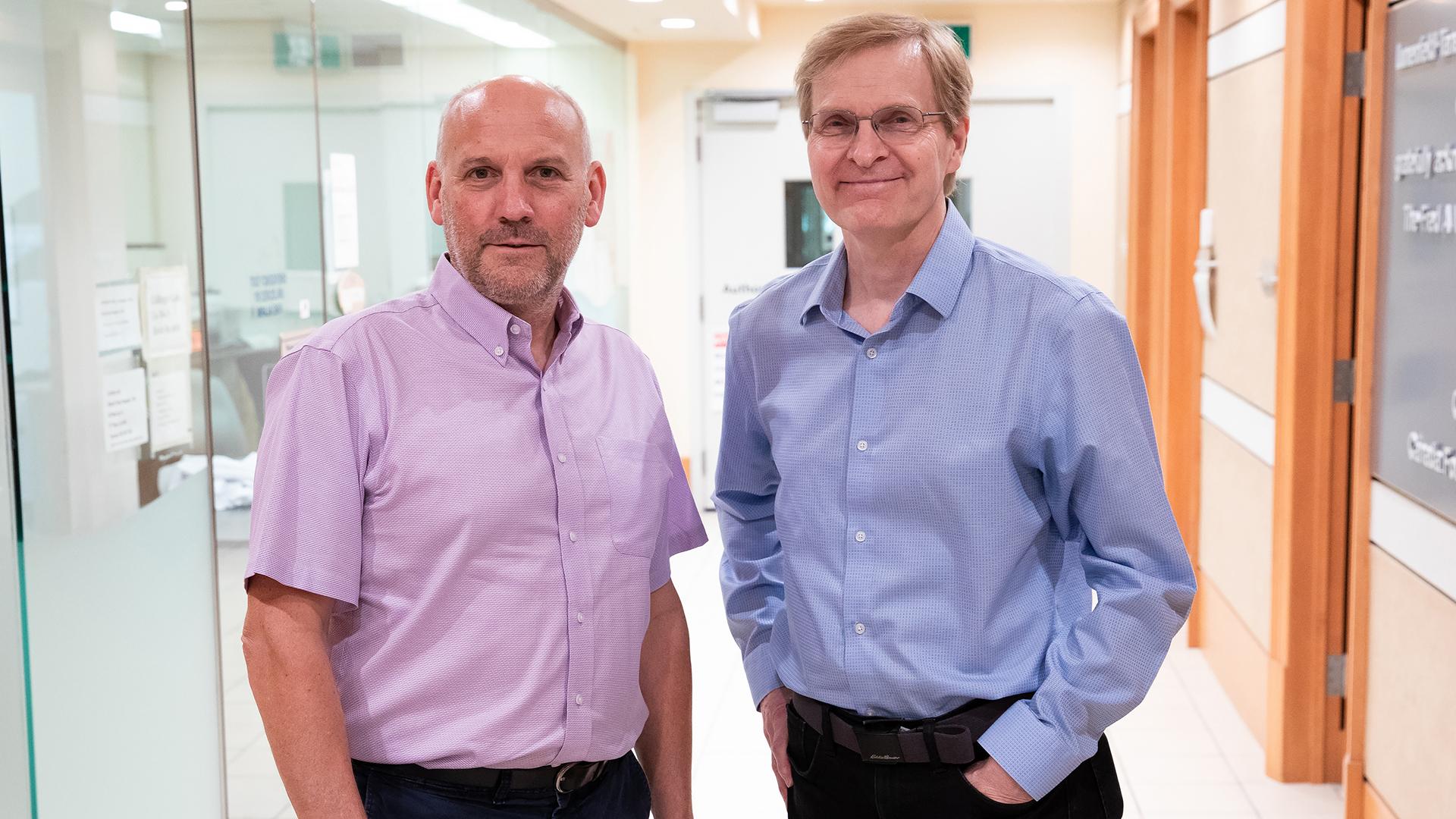Sinai Health researchers awarded over $3M to develop a non-invasive test for prostate cancer

Dr. Keith Jarvi, a Senior Clinician Scientist, Head of Urology at Mount Sinai Hospital, and Director of the Murray Koffler Urologic Wellness Centre has received a $3.3 million grant from Genome Canada to develop a semen test that can predict aggressive prostate cancer.
If successful, the test could eliminate the need for biopsies in thousands of cases —potentially sparing up to 6,000 men from invasive procedures and saving the healthcare system an estimated $8 million annually.
“We have previously identified semen biomarkers that are a more accurate predictor of high-grade prostate cancer than any other non-invasive test currently available,” said Dr. Jarvi, who is also a Professor in the Department of Surgery at the University of Toronto.
“We will combine these semen biomarkers with other prostate cancer indicators to build predictive models to help us individualize a patient's risk of having either high-grade, low-grade, or no prostate cancer. That information could then be used by their clinicians to determine if a biopsy would be warranted for this particular man.”
The research addresses a critical gap in prostate cancer diagnostics, which involves costly MRI scans and invasive biopsies that can lead to complications with often inconclusive results. Because biopsies sample only select areas of the prostate—those more likely to harbor tumours as gleaned from MRI scans—they may miss cancer cells present elsewhere in the gland. As a result, up to one third of men with an initial negative biopsy are later diagnosed with prostate cancer.
Not all prostate cancers require treatment, however. Most patients have low-grade tumours that grow slowly and need monitoring. It’s high-grade tumours that physicians like Dr. Jarvi are concerned about and need immediate treatment because they can rapidly metastasize and spread across the body.
The Genome Canada-funded project will fund translational and clinical research to establish the utility of the semen test for prostate cancer diagnosis in the real world. First, the researchers will validate their test using semen samples from 250 men who already underwent biopsies. These findings will then support the development of an algorithm that will use semen biomarker levels alongside other biomarkers, clinical data and physical findings to assess the likelihood of high-grade prostate cancer, led by computational biology expert, Dr. Shraddha Pai, from the Ontario Institute for Cancer Research.
Next, the team will do a trial comprising 700 men who will undergo the standard diagnostic procedures as well as the new semen test. The men will be recruited from all over Canada, allowing the team to trial the test in the real world and further refine the algorithm across a more diverse patient population.
The project builds on a decade of collaboration between Dr. Jarvi and colleagues at Sinai Health’s Lunenfeld-Tanenbaum Research Institute. Early discovery research by Dr. Jarvi and Dr. Eleftherios Diamandis, an Associate Member of LTRI, identified semen biomarkers linked to male infertility, which increases risk of prostate cancer, laying important groundwork for this diagnostics tool.
Using advanced proteomics and metabolomics technologies, the team has identified a small set of molecules in semen—including two amino acids and two microRNAs—that can detect prostate cancer more accurately than the PSA test and distinguish between high- and low-grade tumors.
The test will be developed in partnership with FlowLabs, a Canadian diagnostic company specializing in male infertility which Dr. Jarvi co-founded in 2015 with a former Sinai Health researcher, Dr. Brendan Mullen. FlowLabs brings critical infrastructure for long-distance semen transport and a national network of diagnostic labs, making it uniquely positioned to support test validation, said. Dr. Jarvi.
Also on the team is Dr. Stephen Matthews, a Senior Investigator at LTRI and Professor of Physiology at the University of Toronto, whose research in microRNA profiling during sperm maturation has provided important insights that support these molecules as promising biomarkers in semen. Postdoctoral fellows in the Matthews Lab, Drs Bona Kim and Chris Casciaro will lead efforts to identify additional microRNAs linked to prostate cancer, further illuminating the biological connection between infertility and cancer risk.
This cross-disciplinary collaboration highlights how foundational research in reproductive biology can translate into innovative diagnostic tools for cancer.
“It has been incredibly exciting to collaborate with Dr. Jarvi and see our foundational research on microRNAs be used to answer pertinent questions in men’s health,” said Dr. Matthews.












